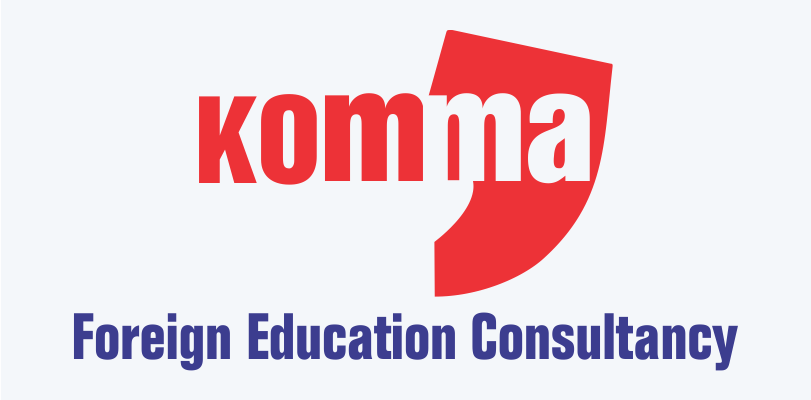Foreign students in Hungary
Hungary attracts foreign students from both EU and non-EU countries. Three quarters of the students arriving to Hungary arrive from just ten countries, while one quarter of the students arrives from another 100 countries. Among the countries sending most students are Germany, Iran, Norway, Israel and Sweden, while the majority of guest students are citizens of the neighbouring countries. In the 2008/2009 academic year, the total number of foreign students studying in Hungary was 16 916, while this number was only 14 491 in 2005/2006. The figures increase because of the following advantages:
- Hungary offers affordable tuition fees and living costs in European Union and Schengen area;
- Number of Nobel Prize Winners and scientific inventors got their education here;
- Easier admission procedure and less documents for getting acceptance;
- Hungary offers different type of scholarships for foreigners;
- The cost of student accommodation in Hungary is lower than most Western European Countries and Scandinavia.
- Lots of education programmes are offered in English and German languages;
- Hungarian embassies issue education visas easier than other European Union and Schengen Member States;
- Residence permit issued in Hungary for foreign students allows them to travel to other Schengen countries without any visa;
- Number of low costs flights connect Hungarian cities to other countries and popular travel destinations;
- Employment opportunities in European Union during education years and after graduation, etc
Why Study in Hungary?
Hungary is becoming an increasingly popular study abroad destination – especially for medicine. Hungarian higher education has gained great credibility over the years in, among other things, it’s very strong tradition in the sciences. Beyond high-quality education, Hungary also offers a lively and welcoming culture, a fascinating history and beautiful cities. For the past twenty years, over 10,000 international students have attended education in Hungary. Hungary is especially popular for studies in the sciences – particularly in such fields as medicine, dentistry and veterinary medicine, to name a few. These are all programs with very competitive admission in many Countries-Hungary offers an accessible alternative. Hungary's high-quality medical degrees are accepted by the World Health Organization and are directly transferrable to any EU country. Schools in Hungary are increasingly offering medical degrees in both English and other foreign languages such as German in order to attract more foreign students. Some of the top countries from which international students come to study in Hungary are Germany, Israel, Norway, Iran, China and Canada.
Higher education in Hungary
Higher education is roughly split into a system of colleges and universities in Hungary. Many colleges are directly affiliated with a university and operate as college faculties of the university. Universities in Hungary generally award both college- and university-level courses. In the old system, college-level training lasts three to four years, whereas a university degree takes at least four years to complete, and can be up to six years with medical programs. Further, studies at universities in Hungary were split into three stages roughly corresponding to the bachelor, master and PhD courses, but with longer study periods. Starting in 2005 and 2006, schools in Hungary started the transformation toward the regulations of the Bologna Process. In this new system, both colleges and universities in Hungary may launch bachelor, master and PhD programs provided that the necessary requirements are fulfilled. This also means that all awarded degrees are equivalent and transferrable throughout the EU and many other countries. As in many other countries, some qualifications are not being available at bachelor level within universities in Hungary, but instead start with the award of a master degree. Examples of such qualifications are medical studies, veterinary science, pharmaceutical studies and architecture to name a few.
The Hungarian academic year
The Hungarian academic year runs with teaching from September to June with long holidays in July and August.
Degree structure in Hungary
Degrees in Hungarian higher education follow the international standard set by the Bologna Process. This means that, apart from certain vocational degrees awarded by non-university and college institutions in Hungary, degrees conform to the standard of bachelor, master and PhD degrees. This means that Hungary's degrees are more widely comparable on the international market, and also that students have the option to pursue a master’s degree in a different field than their bachelors, for example. In certain, more vocationally directed courses in Hungary such as medicine, dentistry and veterinary medicine, the first degree awarded is a master’s degree after five to six years of study. Hungary’s EU membership also means that its degrees awarded in medicine, veterinary studies and architecture are directly transferrable and accepted for professional purposes in other EU countries.
Entry requirements for study in Hungary
For admission to a university or college course in Hungary,students need to have completed a high school diploma, translated into Hungarian or English with the corresponding transcript of courses and grades. Some course admission requirements in Hungary also ask students to take an entrance exam, offered at locations all over the world. For English-speaking education programs in Hungary, part of the entrance exam tests students' English skills. Otherwise, students may be asked to provide proof of their English skills. For education programs offered in other languages – German is quite common – there will be certain requirements for your German skills.
